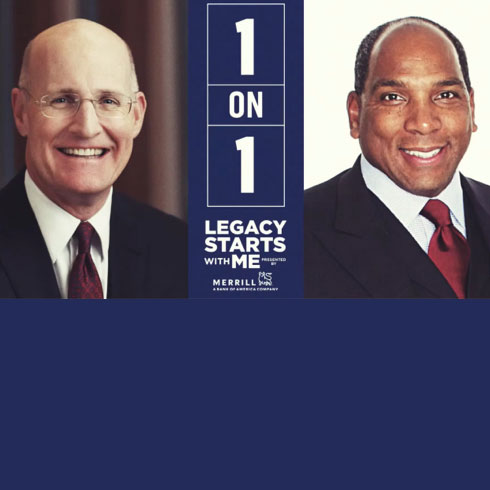The Financial Perspectives of Black Women
Originally published by 
By Jasmine Browley | Updated December 21, 2021
Black/African American women are the backbone of many communities.
From leading the fight on women’s rights, heading up protests for all Black/African American lives, being at the center of important conversations on social media, or giving back to their community, they’re always looking out for others. This is no different in their own households. When it comes to handling finances and building a legacy, the voices of Black/African American women are instrumental in making important decisions for their families.
To learn more about the financial perspectives of affluent Black/African American women, Merrill’s study “Diverse Viewpoints: Exploring Wealth in the Black/African American Community” took a look at participants’ relationships with identity, their money mindset, and how these intersections influence financial priorities. The report puts a spotlight on affluent Black/African American women, sharing their individual stories, circumstances, and authentic experiences.
It’s important to understand that experiences related to wealth are unique, and the way they are portrayed should reflect that. Many of the affluent Black/African Americans Merrill surveyed described feeling frustrated by media portrayals perpetuating clichés about Black/African American wealth and said that the diversity and breadth of Black/African American wealth is often overlooked.
One survey participant, Tiana, shared “There are many of us in the Black community who are wealthy and live normal lives.” This sentiment echoes the desire to start telling different stories so that individuals within and outside of the community can appreciate the full range of diverse wealth.
The report uncovered insights focused on affluent Black/African American women’s relationship to their identity. According to the research, affluent Black/African American women describe their gender as equally important as an identifier as being part of the Black/African American community. Merrill also found that 55% of affluent Black/African American women consider their gender as an identity that defines them.
Mary, a chemical engineer, for instance, describes her multilayered position she holds in the world. “I am a mother, a wife, a friend, a sister and daughter, an active member of my church, an engineer, and I am Black. I am part of the Black community. Oh, and I also represent an African American woman in America.”
Black/African American women are not a monolith.
The study participants recognize the unique challenges both their gender and race pose while on their wealth-building journey. Merrill found that affluent Black/African American women are 20% more likely to say they have had to work harder than others to succeed, compared to affluent general population women.
This sentiment isn’t new. In many Black/African American households, conversations about inequity and the value of hard work are commonplace. Black/African American women are also leaning into the importance of investing in themselves, literally and figuratively.
Merrill’s findings showed that affluent Black/African Americans are four times more likely to have invested in a business they run themselves as compared to the affluent general population, and 23% said they are prioritizing an increase in their savings to begin or continue investing in the stock market.
This was particularly exciting to hear since building a diverse portfolio can be a key pathway to wealth and Merrill found that this insight for many affluent Black/African American women usually comes from having early conversations with their family. This rings true for Michelle, a management consultant.
“Growing up, my dad always stressed the importance of saving,” Michelle shared. “I’ve always done a little consulting business on the side to earn a little more to save, but over the years, I’ve learned that’s not enough for me to be able to really grow my family’s money. I started learning about investing after college when I started putting money in a 401(k). I would talk to coworkers and I went to personal finance workshops to learn everything I could. I would consider myself self-made because I took the initiative to create the outcome I want.”
Like Michelle, many women are working to build the life they desire for themselves. Merrill’s findings showed that affluent Black/African American women are 37% more likely than affluent general population women to be motivated by ambition or desire for personal achievement. Additionally, when compared to the general population, Merrill found that 30% of affluent Black/African American women said gaining financial independence is a key financial goal.
Black/African American women are continuously making strides towards building the futures they envision for themselves and those around them. With their Diverse Viewpoints study, Merrill underscored the importance of understanding how the relationship between wealth and identity shows up uniquely in our lives.
Learn more about Merrill’s study that includes insights and stories around wealth and identity from the Black/African American community at ml.com/diversity.


